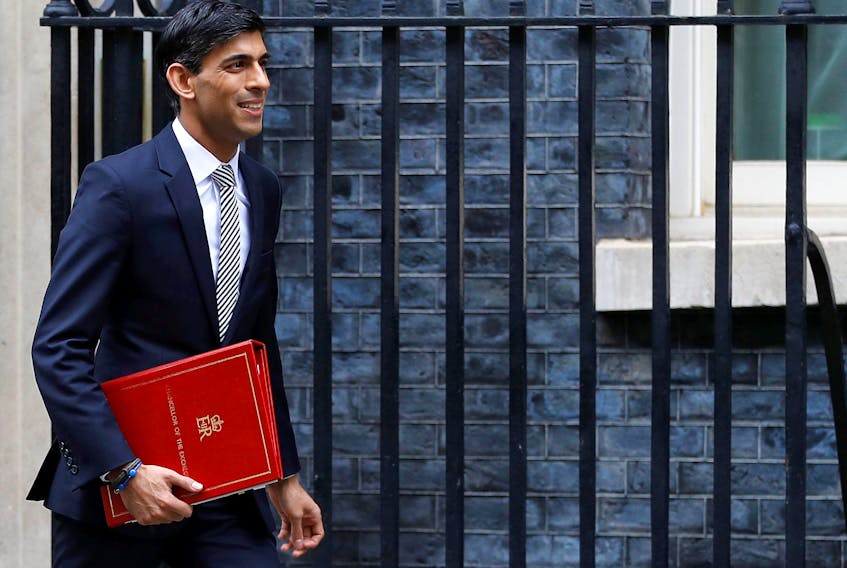LONDON (Reuters) - Britain is considering relaxing rules on public spending at an upcoming budget on March 11, the Sunday Times reported citing unnamed sources.
Finance minister Rishi Sunak, appointed earlier this month after his predecessor Sajid Javid resigned unexpectedly, will deliver his first budget on March 11.
The Sunday Times said Sunak was considering giving himself an extra two years to balance day-to-day spending, extending the current three year target to reach a balanced budget to five years, allowing himself higher spending in the near term.
The newspaper also said that Sunak's predecessor had been asked to change the rules to allow 1% leeway on balancing the budget.
The Treasury did not immediately comment on the report.
If implemented next month, both measures would allow higher spending - something markets have expected since Sunak's appointment.
The 39-year old took the position when Javid resigned because he was not prepared to sack his advisers and cede some power of financial policy to Prime Minister Boris Johnson's office.
Johnson advocated the need for higher spending on public services as central part of his successful election campaign last year.
His campaign also set out three fiscal rules, which were already looser than the existing ones used by previous Conservative governments.
Under those rules, day-to-day spending would not be funded by borrowing within three years' time, public sector net investment would not average more than 3% of GDP, and spending would be reviewed if debt interest payments reach 6% of revenue.
The government has not yet confirmed whether it remains committed to those rules, only saying that the budget would provide a clear fiscal framework for public spending.
(Reporting by William James. Editing by Jane Merriman)









